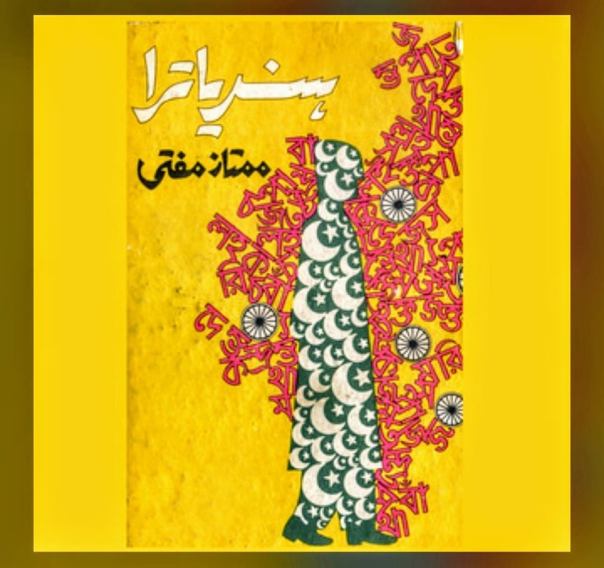I have read works on the partition by mostly Indian authors, Amrita Pritam and Quratulain Hyder top the list. The two women tried to make sense of what was happening in lives, our families and our love. Then there is another genre on partition, travelogue, where residents of one country visit another and share the stories of shared love, culture and hollowness of the boundaries and nationalisms.
 The outstanding work in that genre is that of Balraj Sahni: ਮੇਰਾ ਪਾਕਿਸਤਾਨੀ ਸਫਰਨਾਮਾ (My travelogue of Pakistan), later it is the work of Waryam Singh Sandhu: ਵਗਦੀ ਏ ਰਾਵੀ (The river Ravi flows) which is in the same range of writing. There are countless travelogues of Pakistan in Punjabi. Each lamenting partition.
The outstanding work in that genre is that of Balraj Sahni: ਮੇਰਾ ਪਾਕਿਸਤਾਨੀ ਸਫਰਨਾਮਾ (My travelogue of Pakistan), later it is the work of Waryam Singh Sandhu: ਵਗਦੀ ਏ ਰਾਵੀ (The river Ravi flows) which is in the same range of writing. There are countless travelogues of Pakistan in Punjabi. Each lamenting partition.
This time, I came across another interesting work. It is a travelogue of India ہینر یاترا (Travel to India) by Mumtaz Mufti. Mumtaz Mufti is originally from Batala, moved to Pakistan after the partition. For listening to the travelogue, it is available on Storytel.
He came to India in the early 80s. The pilgrimage to the Dargah of Amir Khusrao and participating in his Urs was the purpose of his visit. Being a homoeopathic doctor, he was keen to buy books by Indian authors, which are not available in Pakistan. Why Indian authors? Because desi masses have similar diseases and European books, the only ones available in Pakistan, are not relevant to them.
Mumtaz revisits the pre-partition life, he makes remarks about the resilience of Sikhs, his anger against Eastern Punjabis, who murdered his brethren and yet he doesn’t feel that hatred anymore, he is left with love and love for Hindus and Sikhs of India. In the travelogue, he shares his reflections on Hindu insecurities, which have resulted in post-partition hatred and mess in the subcontinent.
The narrator of the travelogue is a Pakistani Urdu speaker, and as a result he mispronounces the names of places in India, especially which had و, in his pronunciation, Philaur becomes Philavar and Mehrauli becomes Mehrawali and other names are messed up like Kathu Nangal becomes Kithu Nangal, thanks to the fact that sometimes the sound of ‘e’ and ‘i’ are not represented in Urdu.
Mumtaz doesn’t question the logic of partition, but he criticizes the post-partition animosity between the two countries. Mumtaz stereotypes India as a Hindu country, sees the behaviour of everyone as Hindus or under the influence of Hinduism. He reduces India to Hindu yet acknowledged that India is trying to move on the path of secularism.
Through his travelogue, he walks down the memory lane and reaches the British Raj, teenage love affair and meet the Mughals. According to him, India can never become a Hindu Rashtra till it has Dilli (Delhi) as its national capital, a city inhabited by Sufi dervishes, Kaki, Nizamuddin Aulilya, Khawaja Amir Khusrao and the large Mughal remnants.
Honestly, I feel that partition narrative with all its sides should be mandatorily made part of the school curriculum. Something similar to what Germans did post second world war. There is rich literature on the partition. Reading of such work may help us to defeat the war mongering and help us understand each other better.